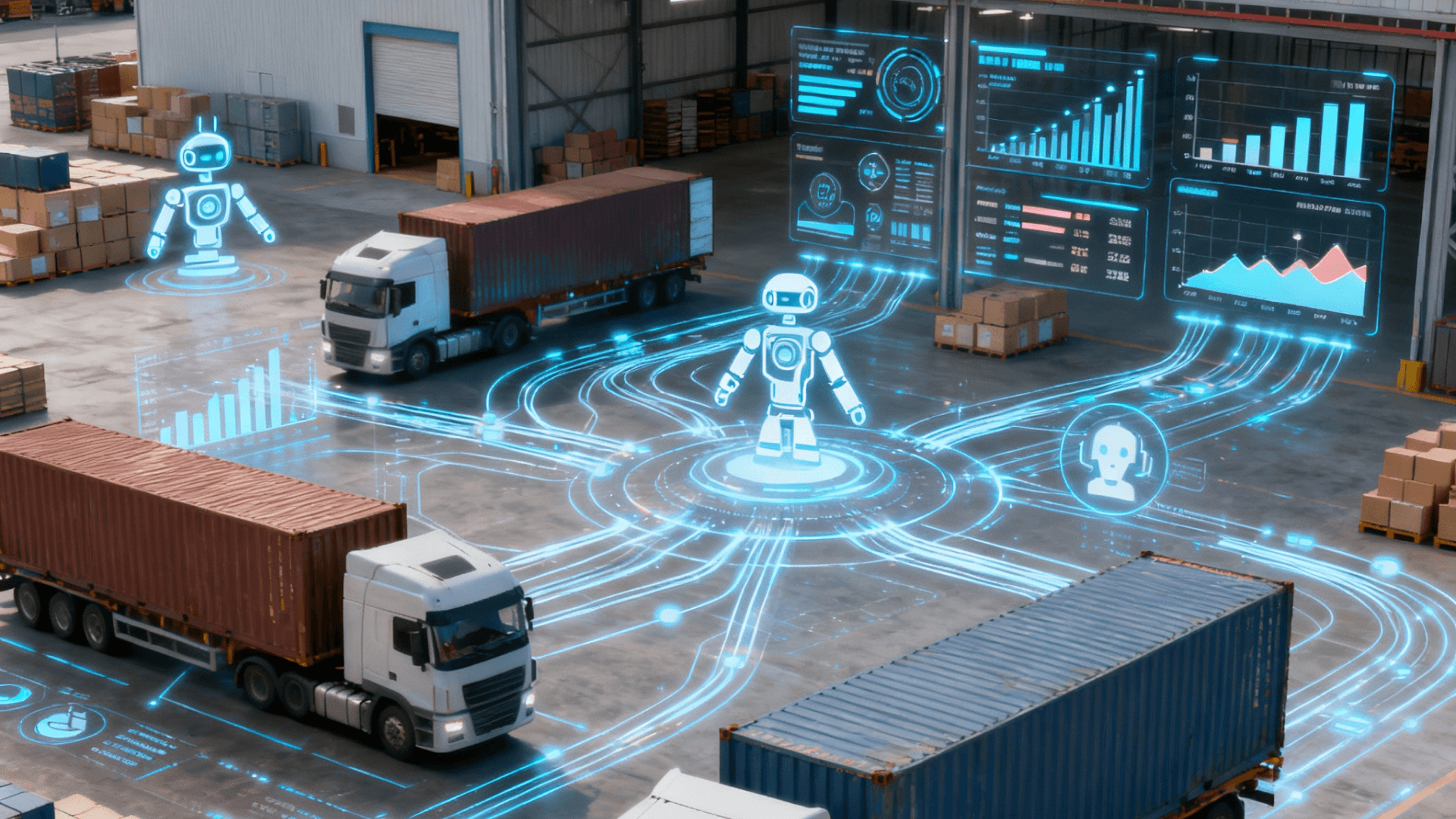What Kind of Data is Needed to Train an Effective AI Model for Supply Chain Optimization?What Kind of Data is Needed to Train an Effective AI Model for Supply Chain Optimization?
Tuesday, 23 Sep 2025
|
What Kind of Data is Needed to Train an Effective AI Model for Supply Chain Optimization?
In today’s fast-evolving supply chain landscape, Artificial Intelligence is no longer a futuristic concept — it’s an operational imperative. But behind every successful AI model is a critical ingredient that determines its power: data.
Without the right data, even the most advanced algorithms can falter. But what exactly qualifies as the “right data”? And how can logistics teams ensure they are preparing solid foundations for impactful AI? This article unlocks the answers, revealing the key data types that drive supply chain optimization.
Curious about how these data types converge in real-world AI applications? Stick with us to explore practical implications and learn how to leverage them effectively.
The Foundation: Why Data is the Heart of AI in Supply Chains
Data fuels AI’s ability to predict, adapt, and optimize. It allows AI systems to detect patterns unseen by human analysis and continuously improve decision quality. From forecasting demand spikes to dynamic route planning, the breadth and depth of usable data define the AI’s success.
Ready to deepen your understanding of how AI harnesses data for logistics? Keep reading for a breakdown of essential data categories.
Key Data Types Necessary for Effective AI Training
- Transactional and Operational Data
Raw facts like orders, shipments, and delivery times create a detailed historical timeline. This foundation is vital for AI to understand supply chain flows. - Inventory Data
Real-time stock levels, turnover rates, and reorder points shape models that balance availability with cost efficiency.
Wondering how inventory variance impacts AI predictions? Analyzing these patterns can drive smarter replenishment strategies.
- Transportation and Fleet Data
Location tracking, fuel consumption, and driver activity provide AI with inputs to optimize schedules and routes dynamically. - Supplier and Vendor Data
Reliable lead time estimates and vendor performance data enable proactive risk management. - Environmental and Market Data
External variables like weather, fuel prices, economic trends, and geopolitical events add context critical for robustness. - Customer Demand Patterns
Sales trends, promotional events, and purchasing behavior feed demand forecasts and capacity planning. - IoT and Sensor Data
Condition monitoring inside warehouses or for vehicles helps predictive maintenance and real-time visibility.
Intrigued by this wide data landscape? These disparate sources must be harmonized and kept current, a challenge modern AI-driven platforms solve elegantly.
How debales.ai Unlocks AI’s Power by Unifying Supply Chain Data
At debales.ai, we’ve designed an AI platform that integrates seamlessly across multiple enterprise systems to extract, clean, and aggregate all critical data streams. The result? Real-time, comprehensive analytics that fuel predictive algorithms tailored for complex logistics operations.
By automating data harmonization and model training, debales.ai helps logistics teams:
- Anticipate demand fluctuations before they occur
- Optimize inventory levels dynamically
- Identify potential shipment delays early
- Streamline communication across operational teams
Interested in the transformative impact of predictive logistics? Discover how predictive analytics improves supply chains.
Preparing Your Data for AI: Best Practices to Maximize ROI
Data readiness is foundational. Preparing your organization means:
- Conducting thorough data audits to eliminate errors and fill gaps
- Implementing real-time data acquisition and validation mechanisms
- Integrating disparate systems to achieve a unified data view
- Partnering with AI experts familiar with logistics nuances
Setting up your data correctly translates directly into higher accuracy and trust in AI-driven decisions. Don't let poor data quality hold your supply chain back.
The Next Step for Future-Ready Logistics
AI-driven supply chain optimization marries leading algorithms with quality data to deliver unprecedented intelligence and agility. But success starts with understanding the data journey.
Are you ready to see how your warehouse and supply chain data can unlock AI’s full potential?
Explore tailored AI applications at debales.ai that make your logistics data work smarter—not harder.
Book a demo today and discover the difference effective data and AI can make for your supply chain.
All blog posts
View All →
Tuesday, 3 Mar 2026
Why accessorials keep wrecking your freight margins
Detention, TONU, reweighs, and lumper fees keep killing margin. Here is why it happens and how to control accessorials this week.

Tuesday, 3 Mar 2026
Why our freight data keeps lying (and what to do)
Late ETAs, surprise accessorials, and messy invoices start with bad freight data. Here’s how ops teams can fix it without new headcount.

Tuesday, 3 Mar 2026
Why accessorials keep blowing up your freight budget
Detention, lumper, reclass, and redelivery fees keep creeping in. Learn why accessorials happen and how to cut disputes and overcharges fast.